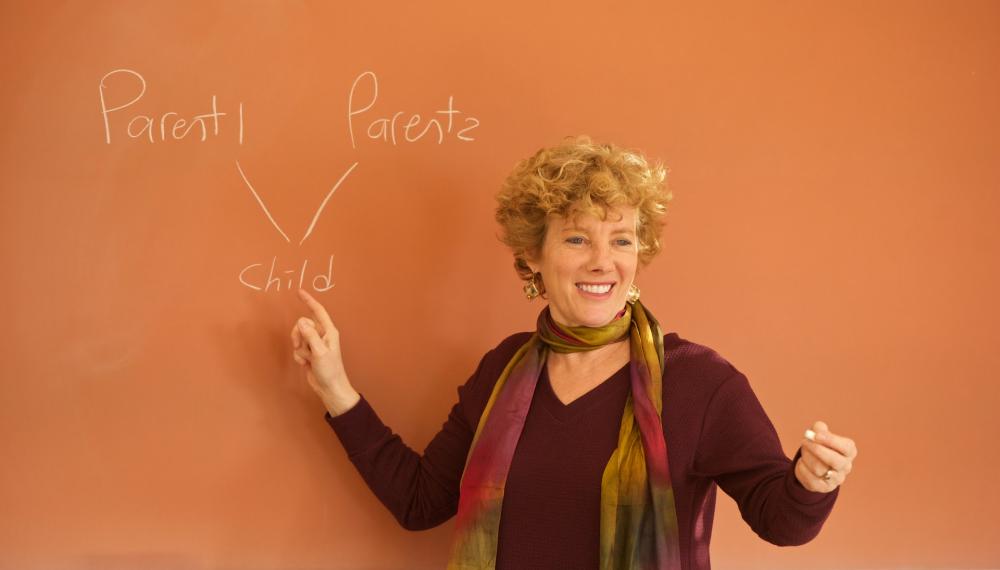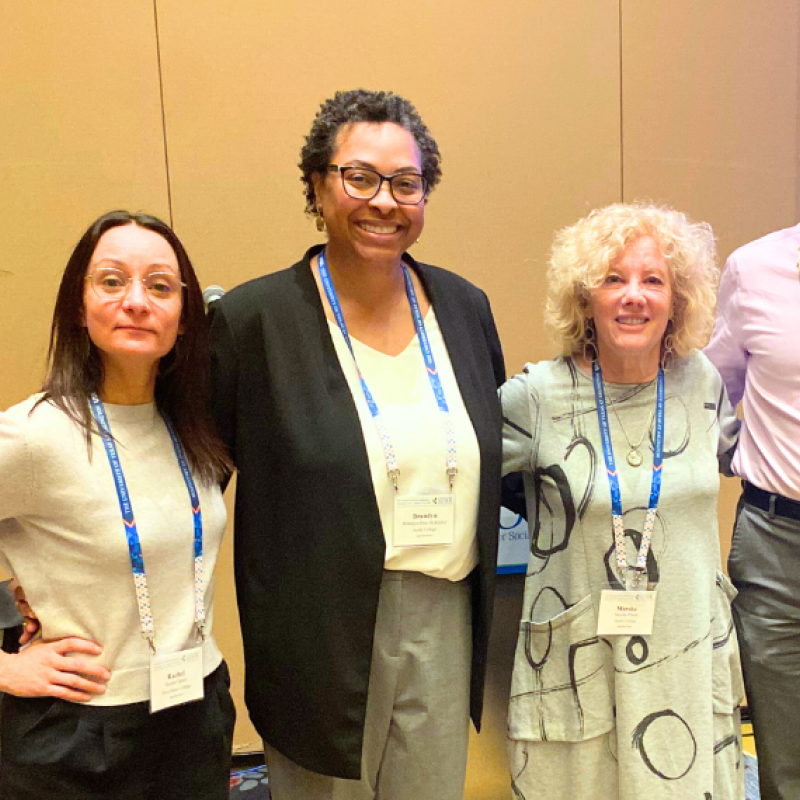
Professor Marsha Kline Pruett, M.S., M.S.L., Ph.D., ABPP, a specialist in co-parenting and family development who describes her focus as “a broader, more inclusive view of family structures,” has been busily working on building and growing tools and interventions focused on family systems dynamics.
One project is Co-Parenting Across Family Structures (CoPAFS), a 27- item survey tool to measure the level of co-parenting within a family, usable both by agencies to track program effectiveness and as a clinical assessment instrument. The survey, currently translated into seven languages, looks at five factors: trust, respect, acrimony, communication and valuing the other parent.
So far, Kline Pruett and her colleagues’ research shows that CoPAFS retains validity across languages and cultures. It also distinguishes how the five factors vary across family structures (such as married, divorced, never married, etc.).
“We’ve published several papers illustrating how the data we’ve collected can be useful clinically and valid statistically, while being short and easy to administer. There’s nothing like it in the field,” Kline Pruett said.
“We’re showing what I would call the fundamental cornerstone of parenting relationships: If there’s no trust and respect, you’re not going to get very far working on communication and anger.”

Kline Pruett also continues refining Supporting Father Involvement (SFI), a co-parenting support program she created with her husband and colleagues some 15 years ago. Called Parents as Partners in countries outside the U.S., the 32-hour program is a small-group intervention that includes collective group sessions, as well as meals, case management and childcare. A series of randomized controlled trials and benchmark studies have demonstrated that 18 months after the intervention SFI reduces child abuse risk factors, including substance misuse, parental stress, violent problem solving and parental depression/anxiety, while increasing paternal involvement, co-parenting communication, the quality of parenting and family income. Relationship satisfaction and child behavior problems remained constant, compared to declines in these areas among control group participants.
“It takes a village,” Kline Pruett said. “We know that it’s best for children to have as much family that can work together on their behalf as possible. My work has focused on bringing fathers who were formerly viewed predominantly as the ‘problem makers’— the men who were absent, abusive, or inconsistent—and create a positive role for them in the family. Their ‘stepping up’ continues to support the incredibly salient role that mothers play, but we also recognize that fathers and grandparents also do a lot of parenting and contribute importantly to children’s well-being in families. We need to widen our focus about who raises children and how they can better work together on behalf of the children they all love.”


